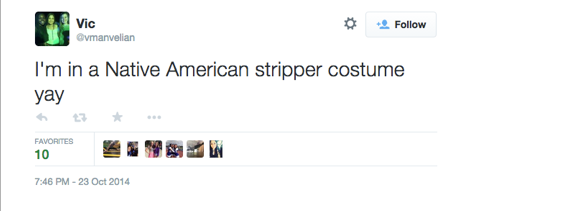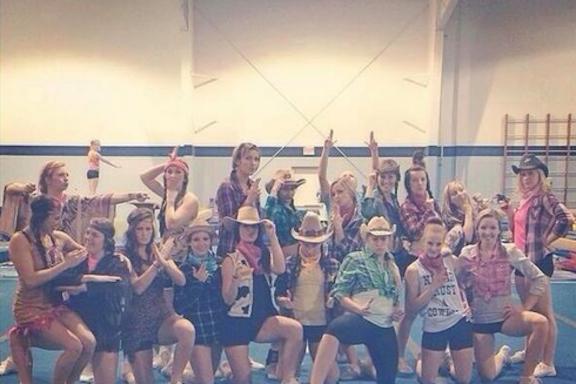By Rosanna Deerchild, CBC News, Canada
Halloween is just around the corner.
I mostly love this celebration. I get to dress my kids up in crazy costumes and raid their Halloween candy as part of my ten per cent mommy tax.
I say ‘mostly’ because there is one aspect of Halloween that I do not love. That is passing by the rows of Indian Princess/Stoic Warrior headdress get-ups that pop up every year.
Seriously, why is this still a thing? I mean costumes are something you put on. Culture is not.
And while we are seeing the headdress being banned from music festivals, it still shows up every Halloween through DIY sites and costume shops.
 A “Native American Headdress” is still an option at many Halloween costume shops. (CBC)
A “Native American Headdress” is still an option at many Halloween costume shops. (CBC)
So why should you not dress your little one up as an “Indian” or yourself for that matter?
Let’s de-feather the issue and take a naked look at the headdress. There are three things to know about the feather headdress.
1. Who wears them?
The headdress was sacred and still is to many indigenous cultures like the Plains Cree and the Lakota people.
2. How do you get one?
They were not just handed out willy nilly, you know.They have to be earned and gifted in ceremony. Only the most fearless leaders and warriors traditionally wore them. It is kind of a big deal.
3. Why is it important to First Nations cultures?
Again, because it is a sacred item. You don’t see people running around with yarmulkes or hijabs in colourful mockery trying to be trendy.
As the image of the stoic warrior and sexy Indian maiden became more prevalent in movies, advertising and pop culture, the more tarnished the headdress became. Until something that once symbolized accomplishment and position was merely a chicken feather hat to be worn as a costume, an accessory, a joke.
While we as a people try to regain the respect for the headdress, we must also still wrestle the image away from hipsters, celebrities, sports team owners and costume shops.
Throw away the war paint, use the feathers to stuff pillows and just say no to culture as a costume this Halloween. Your indigenous friends will thank you.












